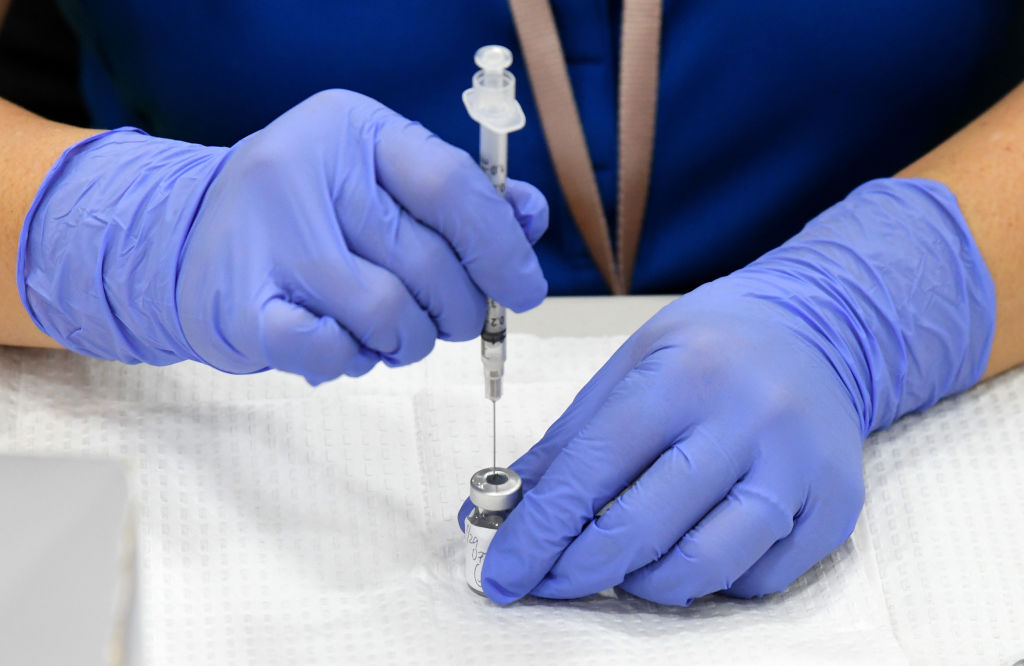There is an ongoing debate on whether booster shots are really needed to ensure optimum protection against COVID-19, especially with the spike in transmissions brought forth by the delta variant. On the one hand, many are doubting the need for an extra shot after completing the two-dose mRNA vaccines and the single-dose J&J vaccine. But on the other hand, experts are pushing for the additional shots, claiming that the efficacy of the vaccines have waned over time.
Weakening COVID-19 Vaccine Efficacy
Four Biden administration officials told Politico Tuesday that most Americans will be needing some booster shots after a raft of new data showed that there’s been a worrying drop in the efficacy of the COVID-19 vaccines over time. Federal scientists, who have been monitoring the potency of the vaccines in the past several months, also noted a decline in the initial round of protection they provided against the novel coronavirus, and the decline was said to coincide with the sudden spike in transmissions caused by the delta variant.
The data the scientists examined covered the effectiveness of the vaccines across age groups and those people who were known to have varying medical conditions when they received the jabs. According to the scientists, the Americans’ immunity against the novel coronavirus was not only fading through time, it has also dropped faster than previously anticipated in the face of the delta strain. As such, the government has decided to start building up a plan for the distribution of the extra vaccine shots, with the target rollout being mid-September at the earliest.
As previously reported, when scientists and medical experts weighed in on the potential need for a new vaccine amid the delta surge, most of them agreed that administering booster shots would be the more feasible solution than having to come up with a delta-specific vaccine. Pre-delta, the mRNA vaccines from Moderna and Pfizer-BioNTech were around 95% effective against COVID-19. But now that the delta strain has surpassed the other variants in terms of number of transmissions, the vaccines’ effectiveness against the virus has reportedly dropped somewhere between 50% and 60%. Meanwhile, the J&J vaccine was said to be less protective against delta compared to the mRNA vaccines.
The Contradicting View On Boosters
Other experts, including some officials at the Centers for Disease Control and Prevention (CDC), are skeptical about the extra jabs, as the data presented at the White House COVID-19 task force meeting over the weekend, allegedly, did not really show a need for boosters. They contended that the government should at least wait for more solid evidence to prove that vaccine protection from severe infections that could lead to hospitalizations or death has indeed worn off. After all, a Mayo Clinic study released last week showed that even though the Pfizer vaccine’s effectiveness against mild COVID-19 had fallen, it was still able to prevent hospitalizations.
The CDC also has a vague guidance on booster shots for the general population. On its Vaccines & Immunizations page, the public health agency stated that it’s not recommending additional doses after the two-dose mRNA COVID-19 vaccines and the single-dose Janssen vaccine as of this time because the need for and timing of booster doses have not been established yet. However, the agency is strongly recommending those who are moderately to severely immunocompromised to receive an additional vaccine shot at least 28 days after completing the two-dose mRNA vaccine series since these people were found to unlikely build adequate levels of protection against the virus following the primary doses.
Based on the CDC’s latest guidance, people who are qualified to receive an extra dose of the mRNA vaccines include those who had solid organ transplants, people actively receiving treatments for solid tumors and malignancies and those who have advanced or untreated HIV infection. Individuals with moderate or severe primary immunodeficiencies and those taking high-dose corticosteroids as part of their treatment for certain conditions are also advised to get the booster shot.
So Do We Really Need Booster Shots?
Though the CDC has yet to update its guidelines to indicate that the general population also needs the extra jabs, there is no reason to believe that we don’t need the booster shots. Research and studies on vaccine efficacy and immunity against the different COVID-19 variants are still ongoing, so medical experts are still pretty much figuring out the best approach to handling the coronavirus situation in the most efficient way. However, it is important to note that right from the start, vaccine manufacturers have already acknowledged the possible need for a third dose someday. And that someday could be referring to the present time, which is eight months after the COVID-19 vaccines were first introduced last December.
“The booster question is being worked out as we speak. People get confused — or they think something is wrong — when guidance changes with COVID-19, but we have to remember that we are learning about this as we go,” Yale Medicine infectious disease specialist Albert Shaw, MD, PhD said. “Right now, there is uncertainty about boosters. Is it possible you’ll need one at some point? Sure, especially if more people don’t get vaccinated and other variants emerge that are worse than what we have now and can possibly evade the protections of the current vaccines.”
















